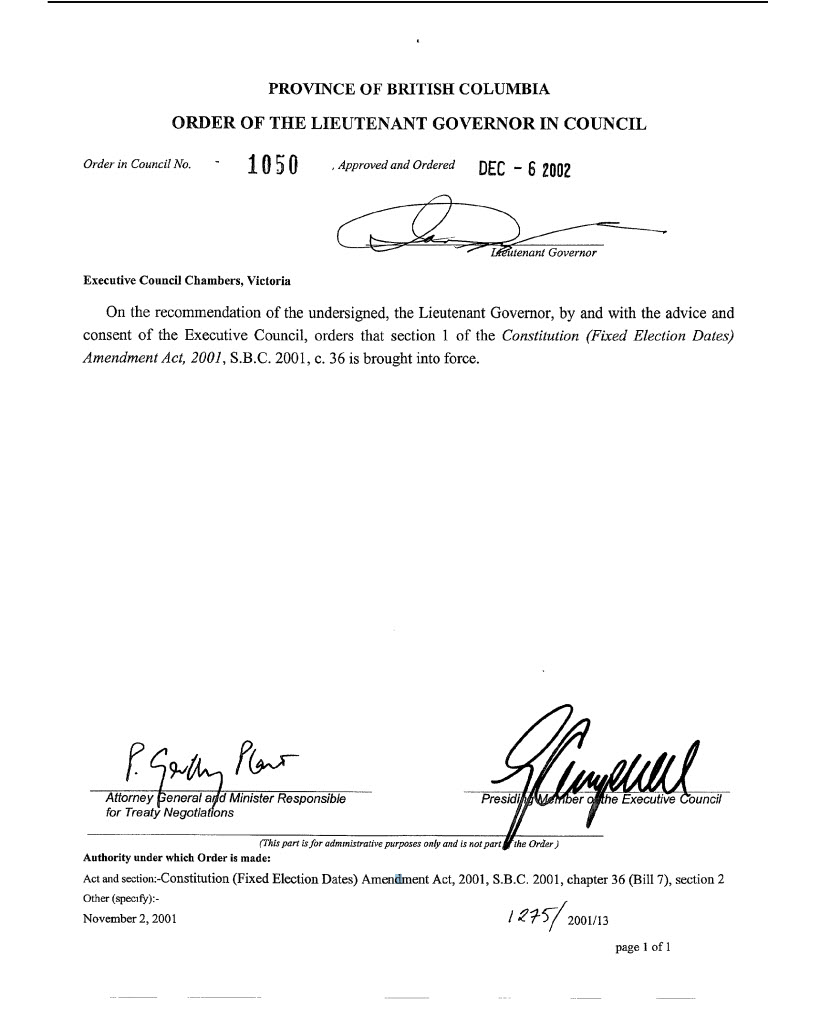The use of fixed election dates is to ensure that the timing of elections cannot be manipulated for political or partisan reasons, and it is used to let British Columbians know how long a government will be in power and what timeline they have to meet their commitments. This helps to reduce uncertainty and improve a government's accountability to the public. The first fixed date election was held in 2005, making British Columbia the first province in Canada to adopt fixed election dates.
It was the Constitution (Fixed Election Dates) Amendment Act, 2001, that originally provided fixed dates for general elections by stating that an election be held on "the second Tuesday in May in the fourth calendar year following the general voting day for the most recently held general election."
The dates were later updated in the Constitution Amendment Act, 2017, which states that "a general voting day must occur on the third Saturday in October in the fourth calendar year following the general voting day for the most recently held general election."
Even with the adoption of fixed election dates, the Lieutenant Governor still retains their royal prerogative to dismiss the Legislative Assembly. If the Assembly is dismissed, a new provincial general election will begin. Traditionally, the Lieutenant Governor will use this power when advised by the Premier to do so, although it remains the right of the Lieutenant Governor to decline the Premier's request.
Established through a Standing Order in 2001, the House officially adopted a Parliamentary Calendar to better organize when Members would meet to conduct legislative business. Along with fixed election dates, changes like the use of a calendar have marked a more stable and predictable approach to the oftentimes hectic business of the Legislative Assembly.

